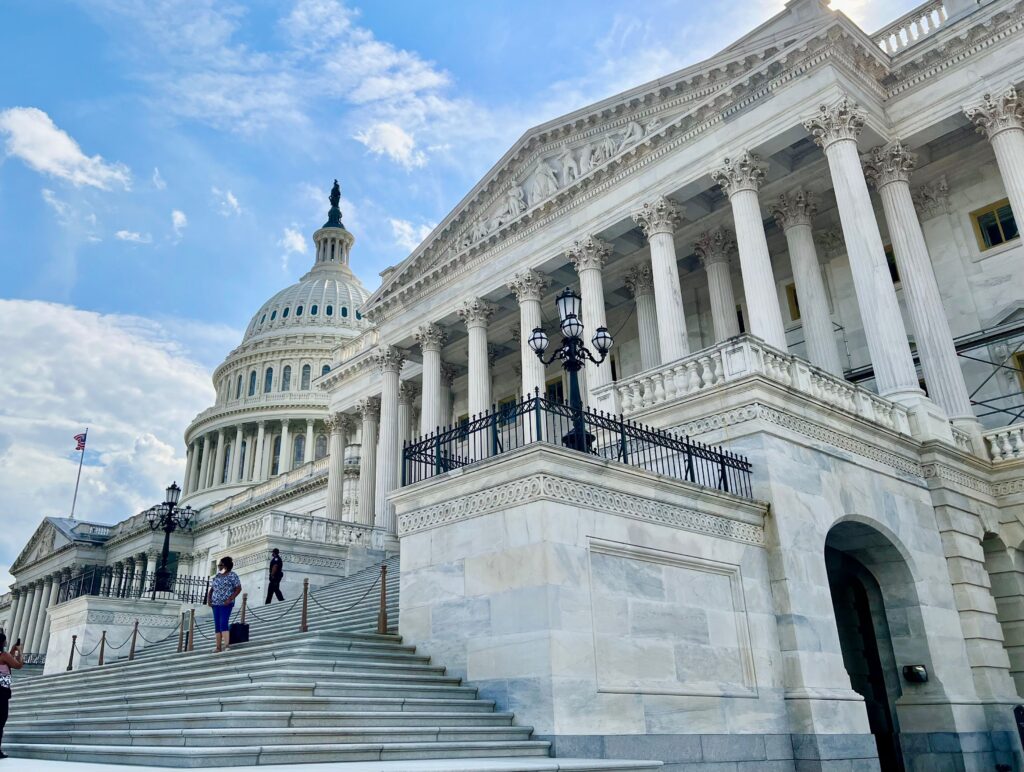U.S. crypto advocates have recently experienced a wave of optimism as key votes in Congress indicate a significant shift in favor of the digital asset industry. This newfound support highlights the growing alliance between crypto lobbyists and lawmakers from both parties, signaling a potential turning point for the future of cryptocurrency legislation.
The Shift in Political Landscape
In just a few years, the cryptocurrency sector has transformed from being viewed as a pariah to having influential allies within the White House and various financial agencies. Recent votes in both the Senate and House of Representatives on an Internal Revenue Service (IRS) rule demonstrate that bipartisan support for crypto initiatives is stronger than ever. Notably, many Democrats joined their Republican counterparts in rejecting a controversial IRS guideline aimed at regulating decentralized finance (DeFi) projects as brokers responsible for comprehensive tax reporting for users.
The bipartisan nature of these votes—backed by 19 Senate Democrats and 76 in the House—suggests that lawmakers are increasingly open to supporting a wide range of crypto-related topics. This shift in sentiment could pave the way for more favorable legislation moving forward.
Advococacy and Legislative Opportunities
Kristin Smith, CEO of the Blockchain Association, remarked on the industry’s transition from a defensive stance to a more proactive approach in pursuing favorable regulations. “For years, we’ve been playing defense—trying to protect the industry from hostile regulators. But now we’re able to think a bit more expansively about what’s possible at the federal level,” Smith stated.
One of the most pressing legislative efforts is the proposed regulation for U.S. stablecoin issuers. With both the House and Senate advancing their respective versions of the bill, a final vote could be imminent. In a time marked by extreme partisanship, the cryptocurrency sector may emerge as a rare point of consensus among lawmakers.
Future Regulatory Framework
The overarching goal for the crypto industry is to establish a clear regulatory framework that governs U.S. crypto trading and transactions. Such legislation would eliminate the ambiguity caused by existing laws and reduce the need for federal agencies to reinterpret regulations for the evolving digital asset landscape. Lawmakers are building on previous initiatives, such as the Financial Innovation and Technology for the 21st Century Act (FIT21), which gained traction in the House but stalled in the Senate. The current Congress may provide a more favorable environment for advancing similar legislation.
Bipartisan Cooperation in Action
The recent legislative activity reflects a growing trend of bipartisan cooperation, as evidenced by the significant support for crypto initiatives even amid heightened political divisions. This collaboration allows lawmakers to focus on developing effective policies rather than getting bogged down by party lines.
The Role of Political Action Committees
A key factor in this political shift has been the emergence of pro-crypto political action committees, such as Fairshake, which invested approximately $139 million to support the election of lawmakers who favor cryptocurrency. With $116 million in funding already available for future campaigns, these PACs are poised to continue influencing the political landscape. Prominent industry players like Coinbase, a16z, and Ripple Labs are among the primary contributors to Fairshake’s efforts.
As the crypto industry grows, so too does the political capital associated with supporting it. “There’s tremendous political benefit in supporting the growth and smart regulation of the industry,” said Josh Vlasto, spokesperson for Fairshake.
Engaging the Crypto Community
The increasing voter familiarity with cryptocurrencies and the demand for regulation have played a crucial role in shaping the current pro-crypto Congress. Groups like Stand With Crypto, backed by Coinbase, have actively sought to engage the crypto-interested electorate, reinforcing the industry’s political presence.
In summary, the recent victories in Congress signal a promising future for cryptocurrency legislation. With bipartisan support and a proactive approach from industry advocates, the crypto community is poised to achieve significant regulatory advancements in the coming years.



